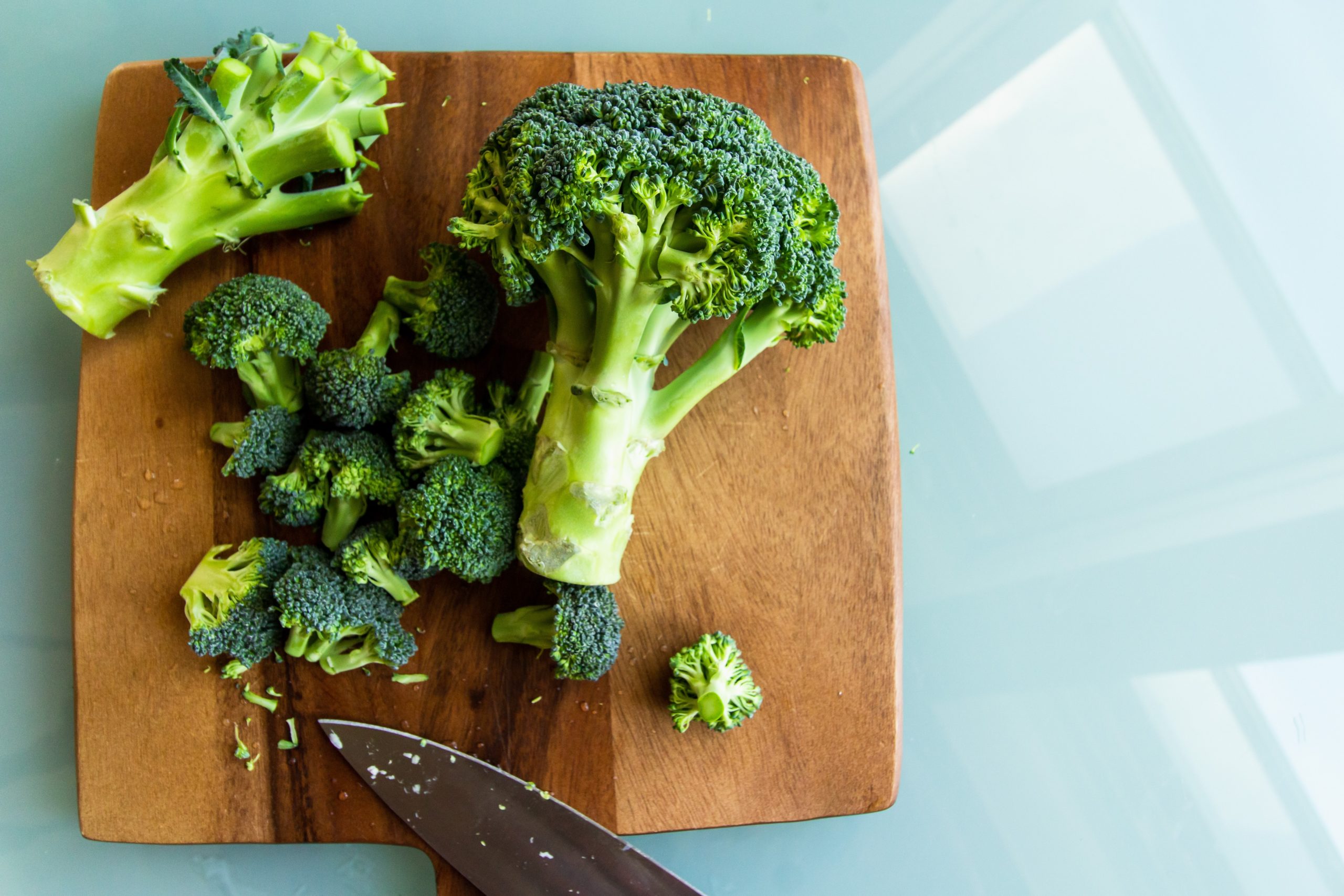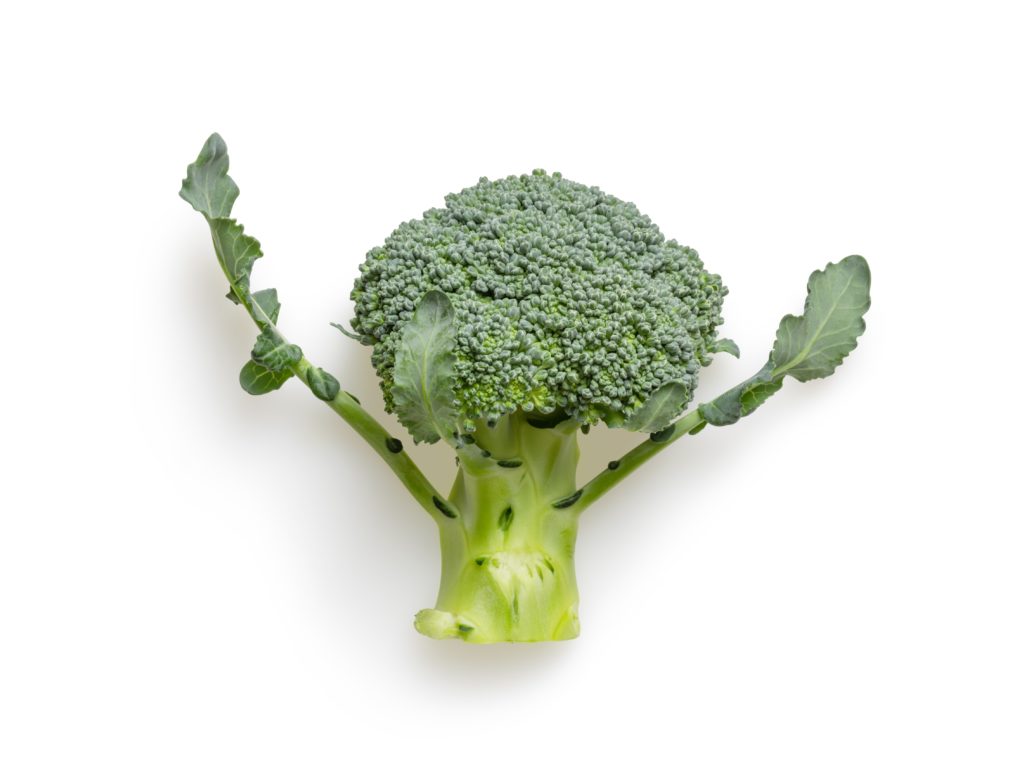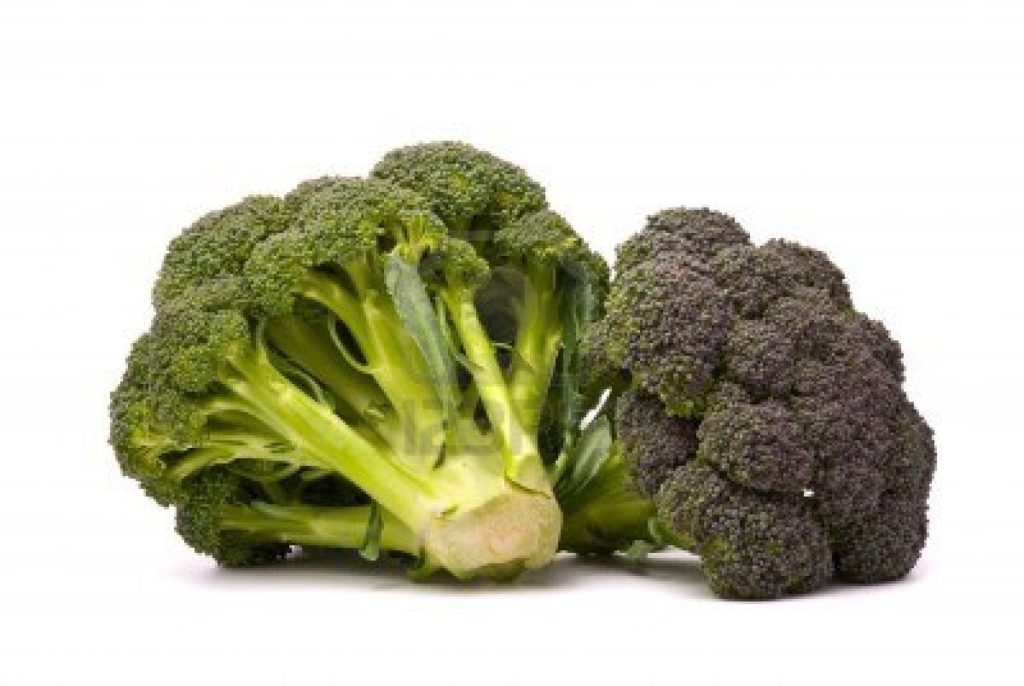Broccoli is an edible green plant belonging to the cabbage family Brassicaceae, and the genus Brassica was grown for its enormous blooming head, stalk, and small accompanying leaves. In this article, we will take a closer look at the nutrition facts for broccoli and explore the many ways in which this vegetable can benefit your overall health and well-being.
Whether you’re looking to boost your immune system, reduce inflammation, or simply add more nutrient-dense foods to your diet, broccoli is an excellent choice that is both versatile and delicious. It belongs to the Italica cultivar group of the Brassica oleracea species. Broccoli features big, dark green blossom heads grouped in a tree-like form, branching out from a sturdy, light green stalk. A ring of leaves surrounds the mass of flower heads. Broccoli looks a lot like cauliflower, a distinct cultivar group of the same Brassica plant.
Broccoli is known to be a superfood. It’s low in calories but high in nutrients and antioxidants that help with various human health issues. Broccoli, like kale, cauliflower, Brussels sprouts, bok choy, cabbage, collard greens, rutabaga, and turnips, is a cruciferous vegetable.
Brassicas like broccoli, which are high in sulfur, may help to enhance gastrointestinal health and, as a result, your immune system. This is because sulfur promotes the formation of glutathione, which is necessary for maintaining and repairing the gut lining. Glutathione acts throughout the body as an antioxidant, protecting cells from inflammatory damage.
Broccoli Nutrition Facts
Broccoli is high in fiber, vitamin C, vitamin K, iron, and potassium, among other minerals, and it also has a higher protein content than most other vegetables. According to recent studies, this green vegetable can be eaten raw or cooked, but mild steaming delivers the highest health advantages. The nutrition facts for 100 grams of broccoli are shown in the following table:
| Nutrient | Amount per Serving | % Daily Value* |
| Calories | 34 | 2% |
| Total Fat | 0.4 g | 1% |
| Saturated Fat | 0.1 g | 0% |
| Trans Fat | 0 g | |
| Cholesterol | 0 mg | 0% |
| Sodium | 33 mg | 1% |
| Total Carbohydrate | 6 g | 2% |
| Dietary Fiber | 2.6 g | 10% |
| Total Sugars | 1.7 g | |
| Protein | 2.8 g | 6% |
| Vitamin D | 0 IU | 0% |
| Calcium | 47 mg | 5% |
| Iron | 0.7 mg | 4% |
| Potassium | 316 mg | 7% |
| Vitamin A | 623 IU | 12% |
| Vitamin C | 89.2 mg | 149% |
| Vitamin E | 0.8 mg | 4% |
| Vitamin K | 101.6 mcg | 127% |
| Folate | 63 mcg | 16% |
Note: *Percent daily values are based on a 2,000-calorie diet. Your daily values may be higher or lower depending on your calorie needs.
Is Broccoli The Most Nutritious Vegetable?
Broccoli is high in fiber, vitamin C, vitamin K, iron, and potassium, among other minerals, and it also has a higher protein content than most other vegetables. According to recent studies, this green vegetable can be eaten raw or cooked, but mild steaming delivers the highest health advantages.
More dark green vegetables, such as broccoli, spinach, and other dark leafy greens, are part of a healthy diet. Increase the amount of red and orange vegetables in your diet, such as carrots, tomatoes, sweet potatoes, legumes, dry beans, and peas.
Is It Safe To Consume Broccoli Daily?
Broccoli is generally safe to eat, and any adverse effects are minor. The most prevalent side effect is gas or intestinal irritation, produced by the high fiber content of broccoli.
“All cruciferous veggies have the potential to make you gassy,” Jarzabkowski explained. “However, the health benefits outweigh the inconvenience. For men and women, one cup (90 grams) of chopped raw broccoli offers 90–108 percent of the Recommended Daily Allowance (RDA) for this vitamin.
Is Broccoli Beneficial To The Skin?
Broccoli has several vitamins and minerals beneficial to skin health, such as zinc, vitamin A, and vitamin C. ( 20 ). Lutein, a carotenoid similar to beta carotene, is also present.
Lutein protects your skin from oxidative damage, which can cause it to wrinkle and become dry broccoli is high in vitamins, minerals, and carotenoids, all of which are beneficial to skin health.
It also includes sulforaphane, which may protect your skin from sunlight and help prevent skin cancer. Vitamin C, on the other hand, is a heat-sensitive vitamin whose amount varies substantially depending on the cooking method.
Is Broccoli Beneficial To Weight Loss?
Broccoli is a healthy carb and high in fiber, which assists digestion, reduces constipation, keeps blood sugar levels low, and inhibits overeating. Broccoli is also high in fiber, making it beneficial for weight loss.
Dark green vegetables, such as broccoli, were found to help reduce abdominal fat in research published in the Journal of the Academy of Nutrition and Dietetics. Broccoli includes phytochemicals, including sulforaphane, which is particularly good for assisting in burning abdominal fat.
Is It Healthy To Eat Broccoli First Thing In The Morning?
Broccoli has a low-calorie count and a high fiber content, which aids in weight loss. While broccoli is not a traditional breakfast dish and may appear to be an unusual choice, there are many delicious and simple ways to incorporate it into your morning meal.
According to new research compiled by Eat Clean, certain vegetables are best eaten at lunch. Cruciferous vegetables, such as broccoli and cauliflower, are high in vitamins, but they also contain much insoluble fiber, which takes a long time to digest.
Is Boiled Broccoli Good For You?
They discovered that microwaving the broccoli in water for five minutes at full power resulted in the most nutrient loss, with the microwaved broccoli losing 74% to 97% of three essential antioxidants. Boiling also resulted in a considerable reduction in antioxidants broccoli is a healthy carb and high in fiber, which assists digestion, reduces constipation, keeps blood sugar levels low, and inhibits overeating. Furthermore, broccoli is beneficial for weight loss due to its high fiber content.
Strong bones are made out of calcium and collagen, and the bones and teeth contain about 99 percent of the calcium in the body. Vitamin C is also required to produce collagen in the body, and both can be found in broccoli. Vitamin K is known for its function in blood clotting, but some scientists believe it could also help prevent or treat osteoporosis. People with low vitamin K levels are more prone to have difficulty forming bones…
Broccoli may have anti-inflammatory qualities. Scientists discovered that the antioxidant action of sulforaphane in broccoli helped decrease inflammation indicators in laboratory tests. As a result, they concluded that broccoli components might help fight against inflammation. Getting enough vitamin K in your diet may help you maintain a healthy set of bones.
Conclusion
In this article, you have learned the nutrition facts of Broccoli. Broccoli is high in antioxidants, vitamins, and minerals. Antioxidants can aid in the prevention of a variety of diseases. During everyday activities like metabolism, the body produces molecules called free radicals, exacerbated by environmental pressures. Free radicals, also known as reactive oxygen species, are hazardous in large numbers, and they can harm cells, leading to cancer and other diseases.
Cruciferous vegetables include a variety of antioxidants that may aid in the prevention of cancer-causing cell damage. Sulforaphane, a sulfur-containing chemical that gives cruciferous vegetables their bitter taste, is one of them. Broccoli may play a role in “green chemoprevention,” People utilize the whole plant or extracts from it to help prevent cancer.



